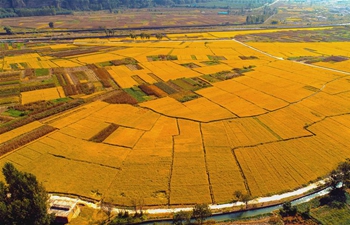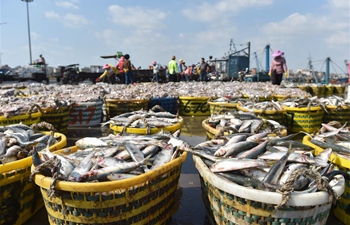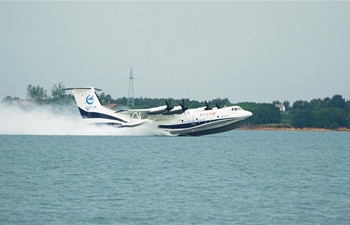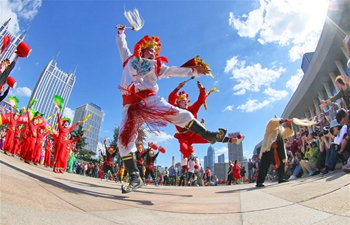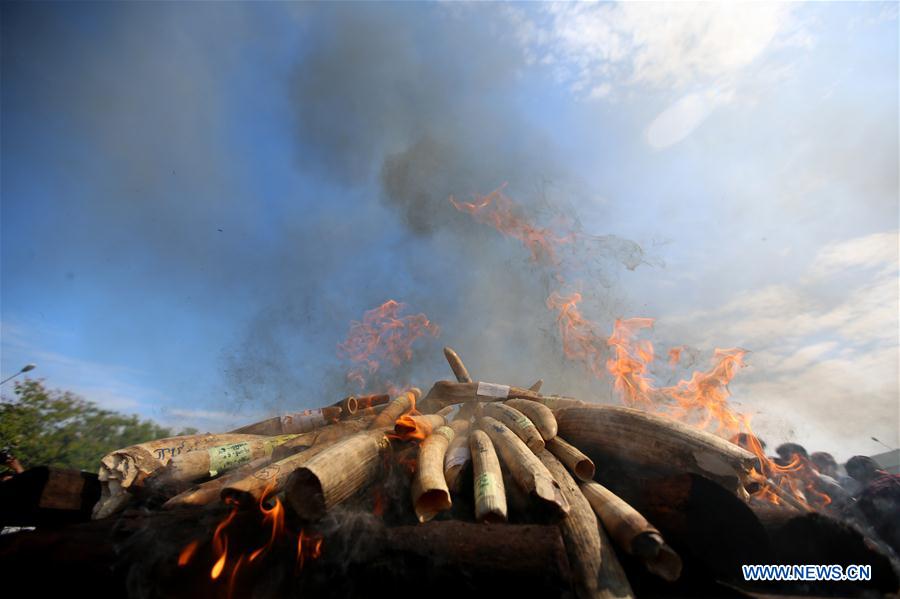
Confiscated elephant tusks are burnt during the destruction ceremony of confiscated elephant ivory and wildlife parts in Nay Pyi Taw, Myanmar, on Oct. 4, 2018. Myanmar's Ministry of Natural Resources and Environmental Conservation on Thursday burnt confiscated elephant ivory and wildlife parts in capital city Nay Pyi Taw to combat illegal wildlife trade. (Xinhua/U Aung)
NAY PYI TAW, Oct. 4 (Xinhua) -- Myanmar's Ministry of Natural Resources and Environmental Conservation on Thursday burnt confiscated elephant ivory and wildlife parts in capital city Nay Pyi Taw to combat illegal wildlife trade.
The authorities ceremonially destroyed 1.3 million U.S. dollars worth of seized wildlife parts, including 277 ivory, 227 elephant and other wildlife's bones, 45 pieces of different wildlife skins, 1,544 different horns, 45.5 kilograms of pangolin scales and 128 varieties of other wildlife parts.
"It is crucial to sustainably conserve our country's natural resources including land, water, forest, mountain and wildlife for the sake of our future generation. We designate and establish protected areas for biodiversity conservation," Minister of Natural Resources and Environmental Conservation U Ohn Win said at the ceremony.
Meanwhile, 42 protected areas which account for 5.79 percent of total country area had been designated so far in Myanmar, the minister added.
In accordance with the section 19 of conservation of biodiversity and protected areas law established in May this year, wildlife protection have been distinguished in three levels -- totally protected, normally protected and seasonally protected species.
Species including elephant, tiger, leopard, gaur, bear, golden deer, pangolin are included in the list of totally protected species.
In accordance with the law, one can be sentenced to at least three to 10 years of imprisonment and fine if one kills or injures the animals in the lists of totally protected species and collects or trade their parts.




